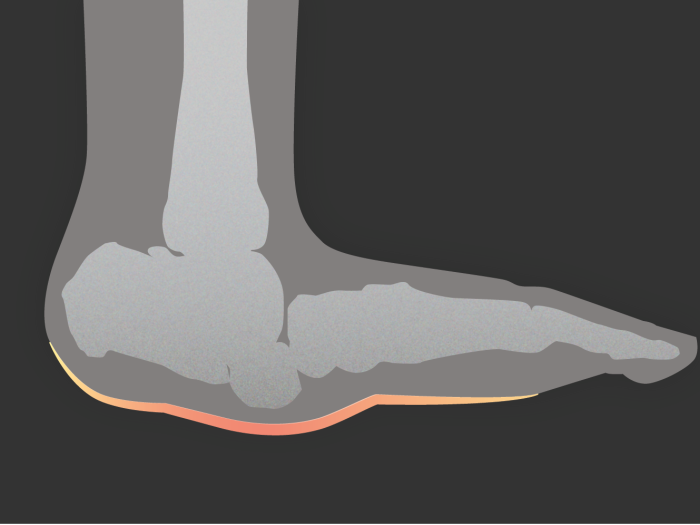In a U-M study, researchers observed a reversal of chronic nerve damage in prediabetic mice that were fed unsaturated dietary fats.
7:00 AM
Author |

People who are diabetic, prediabetic or obese are at high risk of developing diabetic neuropathy, which is chronic nerve damage that often affects the feet and hands.
Researchers at Michigan Medicine may have identified a new way to reverse this common, painful and debilitating condition through simple changes in diet. Their study was published recently in The Journal of Neuroscience.
LISTEN UP: Add the new Michigan Medicine News Break to your Alexa-enabled device, or subscribe to our daily audio updates on iTunes, Google Play and Stitcher.
The findings suggest that changing the types of fat a person eats could reverse the neuropathic damage.
"We were not anticipating such a dramatic effect of diet on nerve function, but our new studies certainly support the old adage that you are what you eat," says Eva L. Feldman M.D., Ph.D., a professor of neurology and the director of Michigan Medicine's Program for Neurology Research and Discovery.
Rich in fats
In 2016, Feldman and her team reported the presence of neuropathy is high in three groups: people with obesity alone, people with prediabetes and people with diabetes.
Diabetes affects 30 million Americans, and type 2 diabetes in particular is an epidemic in this country. An additional 84 million Americans have prediabetes. Even more alarming, about 100 million Americans are obese, which is more than 30 percent of the population. One common factor among these groups is a diet rich in fats, Feldman says.
MORE FROM MICHIGAN: Sign up for our weekly newsletter
"Our research suggests that selecting foods high in unsaturated fats is a healthier option than food high in saturated fats," she says. "While we have known this is true for heart health, we now believe this is also true for a healthy nervous system."
In the U-M study, obese, prediabetic mice were fed a diet high in saturated fatty acids. Later, some animals were switched to a diet high in unsaturated fatty acids. While the calorie counts and weights of the animals remained the same, the animals with a diet of unsaturated fatty acids had a reversal of neuropathy and improved overall health.
The American Diabetes Association website features information about food choices. It further explains the negative effects of food containing unhealthy fats, such as red meats and dairy products with high cream content. Replacing those items with foods that contain unsaturated fats, such as fish, peanut butter, avocados, olives, almonds, plant-based oils and seeds, can be beneficial.
Diabetes Alert Day
"Our previous research also shows that early intervention is imperative to prevent neuropathy," Feldman says. "That is why I am a strong proponent for Diabetes Alert Day."
Diabetes Alert Day, developed by the American Diabetes Association, is March 26. The organization encourages people to take the type 2 diabetes risk test online to learn more about their personal health. Nearly 1 in 4 adults living with diabetes, or 7.2 million Americans, are unaware they have the disease.
SEE ALSO: What Primary Care Providers Should Know About Diabetic Neuropathy
"Over the last 10 years in my clinic, I've witnessed a dramatic increase in the number of patients with prediabetes and diabetes and very painful neuropathy," Feldman says. "Our new research shows that addressing dietary fats is likely essential for an improved lifestyle, and improved lifestyle is our first line of treatment for neuropathy."

Explore a variety of healthcare news & stories by visiting the Health Lab home page for more articles.

Department of Communication at Michigan Medicine
Want top health & research news weekly? Sign up for Health Lab’s newsletters today!





